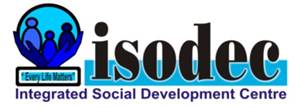Classical western education boasts of its contribution to man’s existence, predicated on his thoughts and not limbs or material appearance.
Generating, analysing, and sharing thoughts were fundamental in proving one’s existence, than the ability to occupy space and move around.
It is for this singular reason that former Chief Justice, Sophia Akuffo, deserves tons of commendation for daring to exercise her inalienable rights, notwithstanding the fact that she benefitted from ex-gratia, a controversial subject in Ghana.
Though Her Ladyship retired on her salary with all the perquisites, others are on a penury sum of GH¢500 a month, with all sorts of old age ailments.
Oftentimes, a bad system doesn’t appear to be wrong to those who benefit from it.
They usually do everything to defend it to the detriment of the larger society.
Societal ills and woes will continue to thrive as long as seemingly good people don’t act in the interest of the larger society and the general good.
The culpability of many people in not doing anything is a result of a mere remote association or direct vested interest.
In his book, The Happiest Man On Earth, The beautiful life of Auschwitz, Eddie Jaku states, “If enough people had stood up then come on Kristallnacht, and said, ‘enough what are you doing?
What is wrong with you?’ then the course of history would have been different, but they did not.
They were scared, they were weak, and their weakness allowed them to be manipulated into hatred.”
Dejure inequalities, or defacto iniquities
The widening pay gap between Article 71 officeholders and ordinary workers needs to be addressed to calm down incessant turmoil on the labour front.
Cutting down on the expenditure would not necessarily, in itself, lead to income redistribution in the larger context per-se, but would serve as a very good gesture in bridging the gap.
In the corporate world, the gap has become a systemic problem. Big company CEOs averaged 100 times more compensation than their typical workers.
These gaps rapidly expand as wages stagnated unjustifiably for lower rungs who face the greatest risks.
The gap is normally explained away with power and functionality.
But most invariably, skyrocketing executive pay does not reflect improved managerial performance.
Consider former president Uhuru Kenyatta’s retirement package, sourced from The Presidential Retirement Benefits Act/SRC (All in KSH): Total gratuity allocation 72 million increased to 79.2m); lump sum pension – 34.7million; monthly pension – 1,115,000; house & utilities per month – 632,063; fuel & entertainment allowance per month – 433,126.
Other benefits are four cars with limousines, replaceable every four years; four messengers, drivers, bodyguards, secretaries; fully furnished offices and medical cover
Skewed global wealth, effects
The global wealth report by Credit Suisse (CS) consistently highlights financial inequality across the world and says that nearly 90 per cent of all global wealth is owned by one to three per cent of the global population.
The rich continue to get richer, while the poor get poorer.
Meanwhile, it is the income shares of the poor and the middle class which are the main engines of growth.
If the income share of the top 20 per cent increases, then GDP growth actually declines over the medium term, this suggests that the benefits do not trickle down.
In contrast, an increase in the income share of the majority bottom poor is associated with higher GDP growth.
The latter, therefore, matters most for growth via a number of interrelated economic, social, technological and political channels with deliberate policies for income redistribution.
At the microeconomic level, inequality increases ill health and spending.
This invariably trickles down to reduce the educational performance of the poor and unavoidably reduces the productive potential of the majority who constitute the workforce.
At the macroeconomic level, inequality can be a brake on growth and lead to economic instability.
One mechanism by which this happens is that the rich arguably consume a smaller proportion of their income than the poor leading to a reduction in aggregate demand and unemployment.
From inequality, vulnerability to prosperity
Ghana until recently was a beacon of hope in poverty reduction.
The fact that inequalities remain meant the benefits of economic growth have not reached the teeming poor.
There cannot be any equivocation that deliberate interventions are required to bridging the gap, particularly as CS’s warns that economic development would rather fast push the world to the brink of inequality.
Economic crises require united and vigorous response in a manner that can generate growth opportunities for all.
The betterment of the same will ensure a haven of peace and security for exponential growth and development.
The writer is an economist.
E-mail: [email protected]














